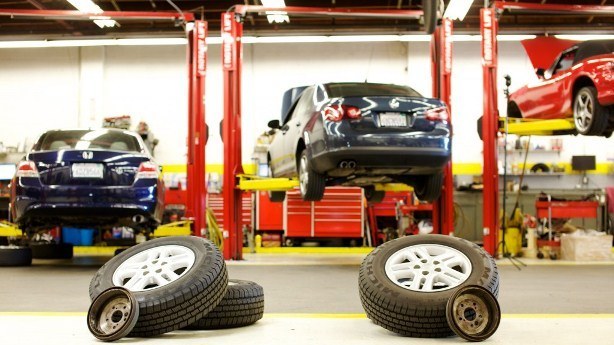All Categories
Featured

Your vehicle's engine is the heart of your car, and keeping it in top problem is important for optimal efficiency and durability. Normal engine tune-ups are an excellent way to maintain your car's health, boost fuel performance, and stay clear of expensive fixings in the future. Whether you're an automobile lover or someone who simply wants to keep their vehicle running efficiently, these engine tune-up tips will help you get the most out of your vehicle.
- Replace Flicker Plugs. Ignition system play an essential duty in beginning your engine and ensuring smooth combustion. With time, ignition system can come to be dirty or worn, bring about misfires, minimized fuel efficiency, and harsh idling.
Throughout an engine tune-up, check and replace your trigger plugs if needed. A lot of cars call for new ignition system every 30,000 to 100,000 miles, depending on the type. Consistently changing ignition system makes sure proper ignition and ideal engine efficiency.
- Examine and Tidy the Air Filter. The air filter prevents dust, dust, and particles from entering your engine. A blocked or unclean air filter limits airflow, causing your engine to function more challenging and burn even more gas.
Evaluate your air filter during a tune-up and change it if it's filthy. In dusty settings or areas with hefty contamination, you may require to alter the air filter a lot more often. A clean air filter can improve gas performance and prolong the life of your engine.
- Check and Change Belts and Hoses. Belts and hose pipes are essential for numerous engine features, such as powering the generator, water pump, and a/c system. With time, these parts can fracture, fray, or wear out, possibly causing breakdowns.
Throughout a tune-up, check belts and tubes for indicators of wear and change them if required. Replacing these components proactively can conserve you from costly repair work and avoid unexpected failures.
- Tidy the Fuel System. Your fuel system, consisting of the gas injectors and fuel lines, can collect dirt and carbon down payments gradually, lowering engine effectiveness. Cleansing the gas system during a tune-up helps improve performance and gas economy.
You can use a fuel system cleaner or have a specialist mechanic do a much more detailed cleaning. This step is particularly important for older cars or autos that often drive in stop-and-go website traffic.
- Check the Battery and Charging System. A healthy and balanced battery is vital for beginning your engine and powering electrical components. During a tune-up, examine the battery terminals for corrosion and make sure the connections are limited.
Examine the battery's voltage and change it if it reveals signs of weak point. Furthermore, have the alternator and billing system checked to guarantee your battery remains charged during procedure.
- Change the Engine Oil and Oil Filter. Oil changes are a basic part of engine maintenance. Engine oil lubes moving parts, decreases friction, and helps control engine temperature. Over time, oil ends up being polluted and sheds its efficiency.
Throughout a tune-up, replace the engine oil and oil filter to maintain your engine running smoothly. Follow your vehicle's maker referrals for oil type and modification periods.
- Evaluate the Cooling System. The cooling system prevents your engine from overheating. In time, coolant can degrade or end up being contaminated, reducing its effectiveness.
Inspect the coolant level and problem during a tune-up, and flush and replace it if required. Check the radiator, water pump, and tubes for leaks or damages. A well-kept cooling system assists your engine run at the appropriate temperature and avoids getting too hot.
- Test the Ignition System. A damaged ignition system can trigger beginning problems and lowered engine efficiency. Throughout a tune-up, inspect the ignition coils, supplier cap, and blades (if relevant) Change any type of parts that reveal indicators of wear or damages to make sure smooth and reputable engine procedure.
- Pay Attention for Unusual Noises. During a tune-up, take the opportunity to pay attention for any kind of uncommon engine sounds, such as knocking, ticking, or hissing. These audios can suggest underlying concerns, such as valve issues, loosened parts, or exhaust leakages. Dealing with these issues early can avoid a lot more comprehensive damages.
- Usage Quality Parts and Fluids. When doing an engine tune-up, constantly make use of high-quality components and fluids that satisfy your automobile maker's specifications. Affordable or inaccurate components can compromise your engine's efficiency and integrity.
Verdict: A Well-Tuned Engine is Secret to Longevity. Regular engine tune-ups are necessary for maintaining your automobile's efficiency, performance, and integrity. By replacing worn elements, cleansing crucial systems, and resolving possible problems, you can maintain your engine running smoothly for many years to come. Whether you're doing it yourself or depending on a relied on mechanic, buying tune-ups is a smart way to shield your vehicle and enjoy a much safer, smoother trip.
Latest Posts
Take Advantage of Special Auto Repair Deals in Chicago at Montclare Auto Repair
Check Out the Greatest Auto Repair Discounts in Montclare, Chicago
Find Out Why Chicago Drivers Select Montclare Auto Repair for Reliable Service and Huge Savings
More
Latest Posts
Take Advantage of Special Auto Repair Deals in Chicago at Montclare Auto Repair
Check Out the Greatest Auto Repair Discounts in Montclare, Chicago
Find Out Why Chicago Drivers Select Montclare Auto Repair for Reliable Service and Huge Savings